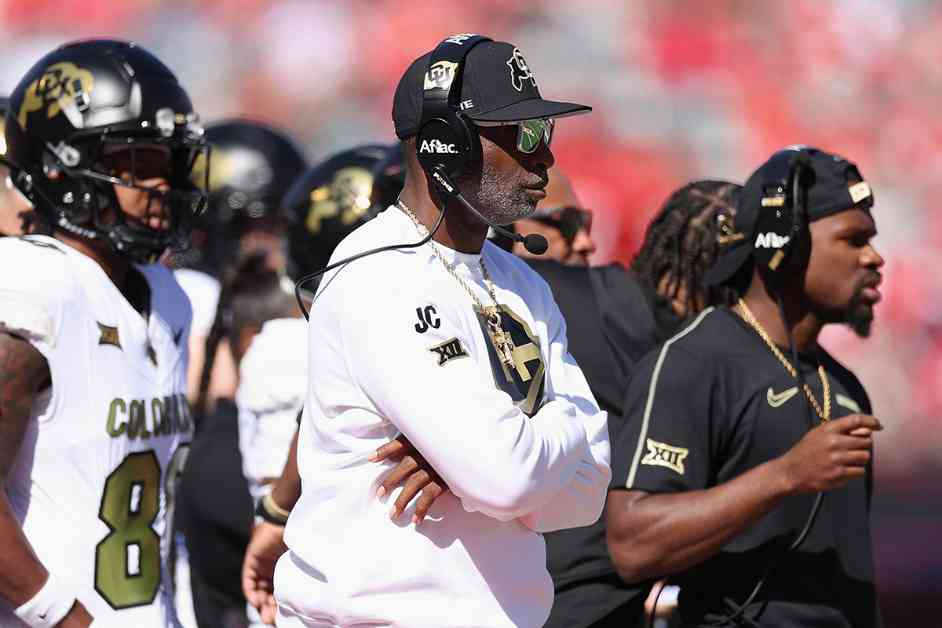Former NFL star Deion Sanders, now the head coach of the Colorado Buffaloes football team, is facing criticism from an atheist group for incorporating religious activities into the team’s routine. The Freedom From Religion Foundation, based in Wisconsin, has taken issue with Sanders’ involvement in post-game prayers and other religious exercises with the players and staff.
In a recent letter to university executives, the FFRF expressed concern over a post-game prayer led by Pastor E. Dewey Smith, where Sanders reportedly urged the team to believe in the Lord. Smith’s prayer included expressions of gratitude to God for the victory and invoked Jesus as the source of their success.
Samantha F. Lawrence, a staff attorney for FFRF, highlighted the power dynamics at play in Sanders’ position as a coach and the potential pressure that young student athletes may feel to participate in religious activities against their beliefs. The organization called on the University of Colorado to intervene and protect the athletes’ First Amendment rights by ensuring that Sanders stops promoting Christianity within the football program.
The FFRF has demanded access to records related to Pastor Smith’s involvement with the team, including financial transactions and travel arrangements. They also seek information on the university’s policies regarding religious expression and the guidelines given to Coach Sanders regarding religious practices within the program.
As of now, the University of Colorado has not responded to the FFRF’s demands for action. The organization is urging the university to address the issue promptly and ensure that Coach Sanders respects the boundaries between coaching football and imposing religious beliefs on student athletes.
The controversy surrounding Sanders’ religious activities raises questions about the intersection of faith and sports in collegiate settings. While personal beliefs are important to many individuals, it is essential to maintain a separation between religious practices and official team activities to uphold the rights and autonomy of all team members.
In light of these developments, it is crucial for institutions like the University of Colorado to establish clear guidelines on religious expression within their athletic programs to prevent any potential conflicts or controversies. By fostering an inclusive and respectful environment for athletes of all backgrounds, universities can uphold their commitment to diversity and create a positive and supportive atmosphere for their student-athletes.




